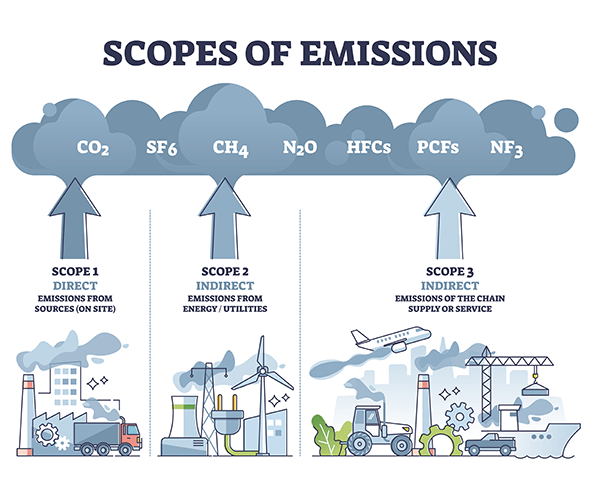The 10-K Carbon
On March 21, 2022, the Securities and Exchange Commission (SEC) released a Proposed Rule that, if passed, would require publicly traded companies to report on certain climate-related information in their financial statements and annual reports. Some of the information required includes climate-related risks, disclosure of greenhouse gas emissions, and climate-related financial metrics, with the objective of providing more transparency and bringing uniformity to such information.

Despite the benevolence of the SEC, its primary function is not to make determinations on how a company should report its climate change initiatives. The SEC is supposed to enforce laws against market manipulation. Their focus should be on protecting investors, maintaining fair, orderly, and efficient markets, and facilitating capital formation.
In the not-so-distant past, the SEC was not an agency that inspired trust or confidence. This is illustrated in films like The Big Short, Too Big To Fail, and The Wizard of Lies. The SEC is now under new leadership, so hopefully, this is no longer the case, but as we proceed with caution, is the SEC the agency that should be in the business of regulating the climate change data? In the words of Ian Malcolm, from Jurassic Park, “[they] were so preoccupied with whether they could, they didn’t stop to think if they should.”
In 2019 Exxon Mobil was charged with defrauding shareholders. They were accused of inwardly researching climate change to plan their operations, yet outwardly casting doubt on global warming. Exxon allegedly employed internal practices that were inconsistent with their representations to investors which exposed the company to greater climate change regulation risk than investors were led to believe. Ultimately, Exxon Mobil won its case. Exxon Mobil prevailed mostly because this was actually a securities fraud case, and not a climate change case. Due to this distinction, there is clearly a need for this information to be recorded and transparent, and regulations around it so companies can be properly held accountable.
There are other government agencies, such as the Department of Energy, the Environmental Protection Agency, or the Department of Agriculture that might be more qualified and perhaps should be more involved in determining what should be done with this data and how it should be reported. This isn’t an argument about whether there is a need for this information, but simply answering the questions, who, what, when, where, why, and how.
Many states are already requiring companies to abide by some type of climate change mitigation laws or already require some form of disclosure information. There are 50 states each making its own rules, some uniformity isn’t a bad idea, but should the SEC be the organization to oversee it? What is needed most is adequate leadership from qualified agencies on the topic of climate change reporting requirements, unless we want to see Part 2 of Too Big To Fail.